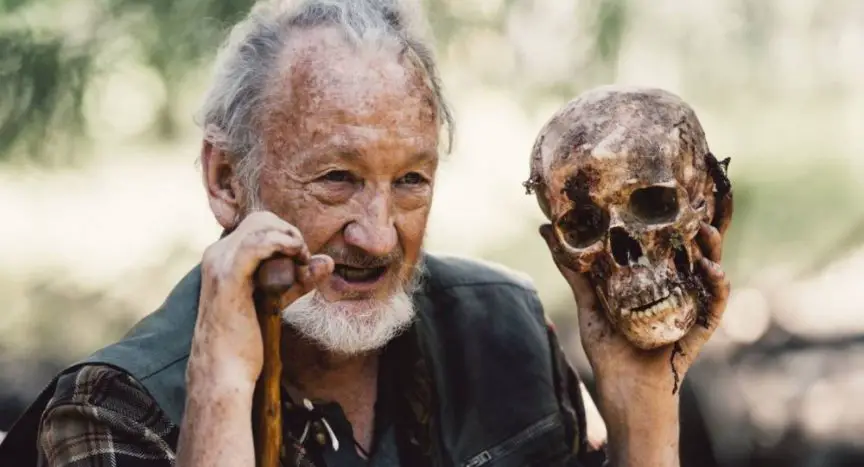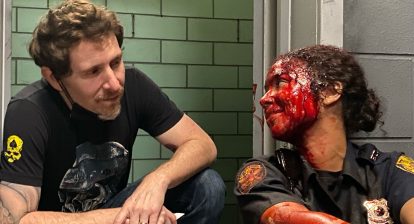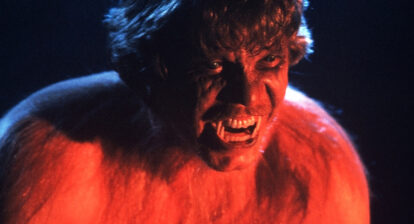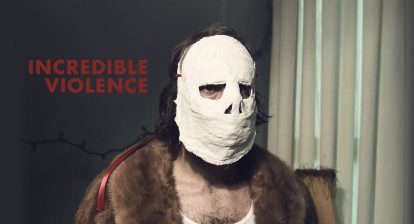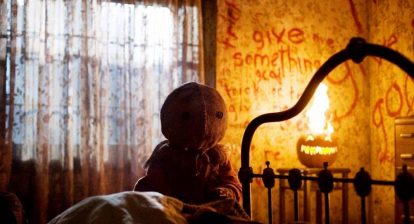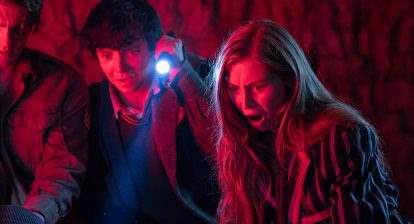True Terror with Robert Englund premiered on March 18th. If you’ve missed it due to the current craziness infesting the world, don’t despair. The Travel Channel is airing the inaugural episode throughout the week. Do yourself a favor while we’re all quanrantined and catch up. Fans of Unsolved Mysteries and Beyond Belief: Fact or Fiction will find True Terror familiar and fantastic. Little needs to be said of Robert Enlgund’s allure as an actor, we’re all watching because of him. Channeling a bit of Rod Serling and Robert Stack, Englund brings his own twist to the table. Recenly, Wicked Horror had the chance to hop on a conference call interview with Robert Englund himself. Read on to see what he had to say about his new hosting gig.
Also See: True Terror with Robert Englund is a Modern Classic With A Campy Edge
When asked if there was a conscious effort put forth to conjure the vibes and emotions of the cult classics listed above, Englung says, “I think one of our producer or writers–that show, that Unsolved Mysteries was really a kind of–I don’t want to say benchmark. There’s a better word for it. But, it’s really one of those moments of his youth that he held dear.” Englund states. “It was sort of just this thing he looked forward to. You know, and it was a place to rest. It was something he liked. He liked having it part of his life. And he wanted to get something like that back again, you know, with more of that feel.
And I really do think that there’s, you know–it’s difficult for me because sometimes I’m trying to go from being, you know, a kind of–a version of Robert Englund that the fans expect. I’m a little darker, and I’m a little darker, and I list this stuff a little more than perhaps I really do. And then, when I go into the narration, sometimes it goes right from my on screen hosting duties and it’s tricky because I want to sometimes be conversational. The wonderful host of Dateline does a great job with that in his narration where sometimes he’s just very offhand and conversational and matter of fact, and then, sometimes because of the way the writing goes and it’s–it gets poetic or especially because most of our shows are period, there’s a hint of the old time to the writing, old timey journalism. And I want to embrace that as well.
So, it’s kind of a challenge, you know, because you’re going from your image on screen to now it’s your same voice. But now, you’re narrating. It might be a really gothic image. It might be something violent. It might be something lyrical and elegiac, and so, you want to kind–you have to make that transition and make those decisions. It’s kind of a challenge. But, I like it. But, it’s new for me. I’ve done on screen hosting before, but not since–I don’t think since the nineties. And to combine that with the narration duties–and I don’t always see all of the images that they’re shooting because we’re working different schedules at different times, and they’re not always shooting them in the same, you know, sync as I’m doing the narration–and it’s great when they have the footage available because when we’re working with the timing of the narration or when I’m–that helps me pick the mood a little bit better because many times the images are darker than I think. And so, I can afford to go a little theatrical with my narration choices.”
Of course, no chat with one of the Masters of the Macabre wouls be complete without some mention of Freddy Krueger. When questioned on the genisis of his iconic character and the rising theories that Freddy is based on a true tale of terror, England replies, ” Well, you know, there’s–Freddy’s an amalgamation of Wes Craven’s experiences. I think that there was a bully in his school named Fred Krueger. And I think when Wes chose the name for his bogeyman, he liked a Germanic aspect. Frederick Krueger, very tectonic. And I think that part of that is that Fred–that there’s always been a bit of–a kind of a dark side of the Grimm’s fairy tale to the fable of Freddy Krueger, The Nightmare on Elm Street.
You know, so, that’s part of it. The other part is that there was a point in time when Johnny Carson was doing Freddy Krueger jokes and Freddy Krueger was on the cover of MAD Magazine and Freddy Krueger was in the Sunday funnies, you know, in some of the more bizarre strips. And he was the subject of just about hundreds of rap lyrics in the nineties and the early 2000s. That he becomes, you know–Wes doesn’t own him anymore, and I don’t own him anymore, and New Line Cinema no longer owns him anymore. He’s just part of the American vernacular. And I think that’s where it gets confusing for some people, especially a younger generation comes along, and they see an old DVD lying around or they watch it on a Halloween, you know, marathon. And they think that maybe it was based on something true like Ted Bundy, you know, is–was a true serial killer story.
But, in fact, you know, the whole concept of Nightmare on Elm Street is very symbolic. I think basically it’s loss of innocence in America. The one clue that nobody ever picks up on, you know–Freddy has the line, “Every town has an Elm Street.” Well, every town also has a Broadway and a Main Street and an Oak Street. But, Elm Street’s also the street that JFK was assassinated on in Dallas. And that’s sort of the beginning of our loss of innocence and our distrust of government and our kind of group American paranoia. And Wes was sort of turning that around and making that also the loss of innocence for a generation and, in particular, young women because we always have a woman survivor, you know, the survivor girl, as they say in Holly-weird. But, I think it’s an amalgamation of all of those things that sort of, you know, nightmare–a legend.”
Wicked Horror would like to thank Robert Englund for his time and True Terror airs Wednesday at 10/9c on the Travel Channel!
Follow us on social media: Twitter, Facebook, Instagram, and Youtube.
